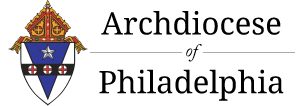History is a great teacher, sometimes in unusual and very personal ways. Here’s an example.
Reading the Reichskonkordat (“Reich concordat” with the German state) today, 85 years after its 1933 signing, sparks some interesting thoughts. Structured as a treaty to govern the relations between the Holy See and German government, the text is remarkably positive. It’s also thorough. As deals go, this was a good one. The state got a stable legal relationship with a well-organized, potentially troublesome, and internationally connected religious minority. The Church got protection for her people.
A few problematic passages in the text do exist. Article 14.2 obliges the Church to consult the German Reich on the appointment of archbishops and coadjutors. Article 16 requires new bishops to take an oath of loyalty to the state. But details like these weren’t unknown in Europe’s historical context. The concordat’s guarantees of Church freedom to profess and practice the Catholic faith, and to pursue Catholic education and social ministries without interference, are extensive, explicit, and generous.
They were also empty. The Reich began violating the deal almost as soon as the ink on the treaty was dry. State pressure on Church life was so harsh by 1937 – just four years later — that Pius XI’s encyclical, Mit brennender Sorge (“With burning concern”) had to be smuggled into the country. It was read from all of Germany’s pulpits on Palm Sunday of that year. In it, the Holy Father condemned the Reich’s (Nazi-directed) neo-paganism, race hatred, “Aryanized” Christianity, widespread attack on human rights, and contempt for the Old Testament. In response, the state simply doubled down on its pressure.
What’s the lesson here? It’s this: If you sup with the devil (so the proverb warns), you’d better bring a long spoon. It’s probably a bad idea in the first place.
But there’s more. As it is in diplomacy and politics, so it is in every person’s individual life. The deals we make with the world, and the flesh, and the devil, always go south. The line dividing good and evil is usually – not always, but usually – pretty bright for anyone who wants to see it. Most of us really don’t want to see it, of course, because doing so would cramp our own daily behavior. We negotiate little “concordats” with our favorite personal sins, ugly habits and dictatorial appetites all the time.
If we’re constantly angry, it’s because everybody else is so unfair. If we’re hooked on porn, surely cutting back to just an hour of it every day is “better” than three. If alcohol’s the problem, four drinks is obviously “better” than six – right? For every forbidden, hurtful, dishonest thing we like to do, we’re experts at self-deceit; at training our consciences to perform like pets . . . well-manicured poodles that offer us alibis on demand, like:
“I didn’t have a choice;” or
“Hey, there were extenuating circumstances;” or
“The Church is out of touch;” or
“There’s a new paradigm for thinking about this particular unpleasantness;” or
“I know it’s not ideal, but this is the best I could do;” or
“There’s been a revolution in Church thinking on all sorts of complex issues – like mine;” or
“OK this is wrong, but it’s not THAT bad.”
We all have a barrel of excellent excuses. You do. I do. And we add to them all the time.
February 14 this year is Ash Wednesday, the start of Lent. It’s the day on which a loving God invites all of us to smash our miserable little concordats with sin and its alibis to bits. The teaching of the Church – rooted in the Word of God, confirmed by experience, consistent in its expression, sometimes difficult but always liberating – is the standard of holiness and the guide to our Father’s expectations. We need to cling to it, confident in God’s mercy, in judging our own actions and redirecting our lives, no matter how radically that new path demands.
So may God grant all of us a holy and fruitful Lent, and I ask you to pray for me, as I will pray for you.
# # #
Editor’s Note: Columns will be published each week on www.CatholicPhilly.com and can also be found at https://archphila.org/archbishop-chaput/statements/statements.php.






